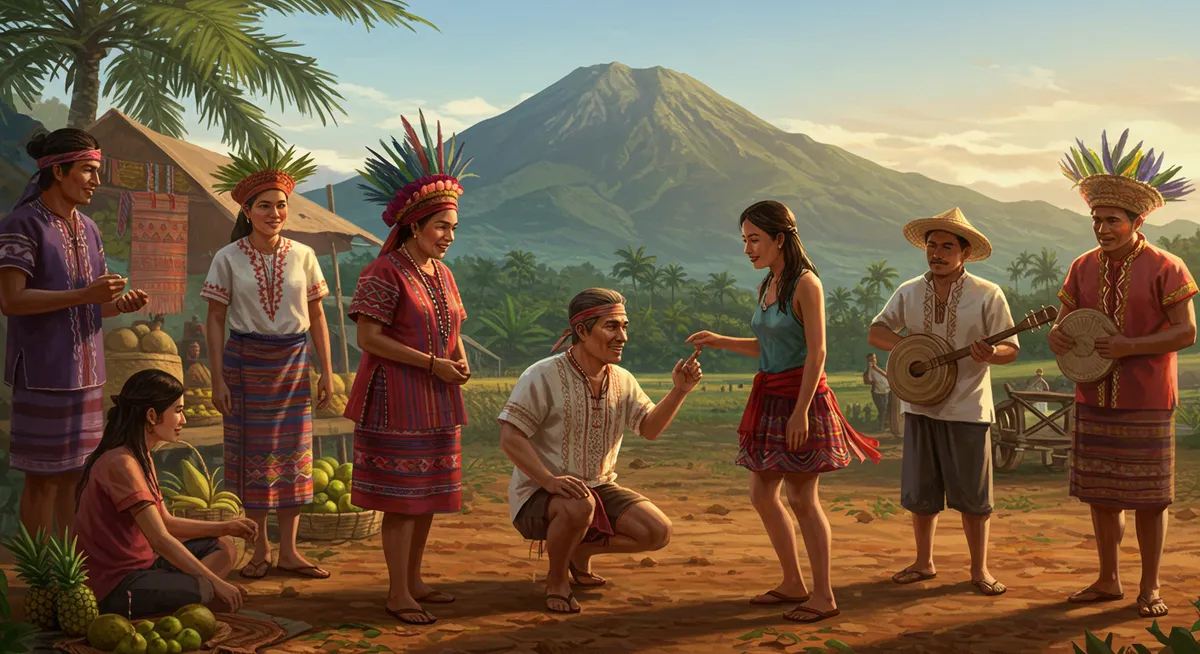
Davao Cultural Etiquette & Local Customs
Table of Contents
Want to find the best travel deals for this destination? Chat with our travel hacking specialist!
Get Travel HacksCategory: davao-cultural-etiquette-and-local-customs
Navigating Davao: Understanding Local Customs
As someone who has traveled extensively across Southeast Asia, I've learned that truly experiencing a destination means understanding its heart, especially its culture. Davao, often called the "Crown Jewel of Mindanao," is no exception. Before diving into its vibrant markets and breathtaking natural wonders, embracing Davao cultural etiquette and local customs is key to a rewarding visit.
Respecting Elders and Authority
One of the most fundamental aspects of Davao cultural etiquette and local customs is the deep respect for elders and authority figures. Filipinos commonly practice "Mano Po," where you take an elder's hand and touch it to your forehead as a sign of respect, accompanied by a polite bow. Additionally, using "Po" and "Opo" when addressing someone older or in authority demonstrates deference and politeness. I've personally found that simply observing and imitating these gestures goes a long way in showing sincerity. It is a genuine and heartwarming Filipino tradition that newcomers should readily embrace. Remembering these simple acts will significantly enhance your interactions as you explore this wonderful region, especially when consulting a comprehensive Davao travel guide.
Dining and Hospitality Traditions
Filipino hospitality is legendary, and Davao cultural etiquette and local customs surrounding dining are no exception. When invited to a Filipino home, it's customary to accept food offerings, even if you just take a small portion. Refusing outright can be seen as impolite. Guests are often served first, and sharing food from a communal plate is common. I've learned to always accept food, even a small portion, as a gesture of goodwill and appreciation. Furthermore, wait for the host or the eldest person to start eating before you do. Remember, these dining practices are an integral part of experiencing the local lifestyle and truly enhance any Davao itinerary, making your visit truly immersive.
Appropriate Dress and Public Conduct
Understanding appropriate dress and public conduct is crucial for adhering to Davao cultural etiquette and local customs. While Davao is generally progressive, modesty is still valued, especially in religious sites like churches or mosques. It's advisable for both men and women to wear conservative clothing that covers shoulders and knees when visiting such places. In public, excessive displays of affection are generally frowned upon. As a seasoned traveler, I always pack light, breathable clothes that cover my shoulders and knees, ensuring comfort while showing respect for local sensibilities. This thoughtful approach allows you to seamlessly engage in top things to do in Davao City without causing unintentional offense.
Communication and Social Interactions
Navigating social interactions thoughtfully is key to understanding Davao cultural etiquette and local customs. Filipinos generally prefer indirect communication to avoid confrontation or causing
Frequently Asked Questions
What is the most important cultural custom to know in Davao?
Are there specific dress codes for temples or churches in Davao?
Is tipping common or expected in Davao?
Embracing Davao cultural etiquette and local customs truly enriches your travel experience, transforming a mere visit into a genuine connection with its people and heritage. From respectful greetings to mindful interactions, these small efforts make a profound difference. By understanding and honoring these traditions, you'll not only avoid unintentional offense but also gain deeper insights into the vibrant spirit of Davao. Dive into the heart of Mindanao with confidence, respect, and an open mind. Plan your next unforgettable journey to Davao and explore its unique blend of culture and charm.